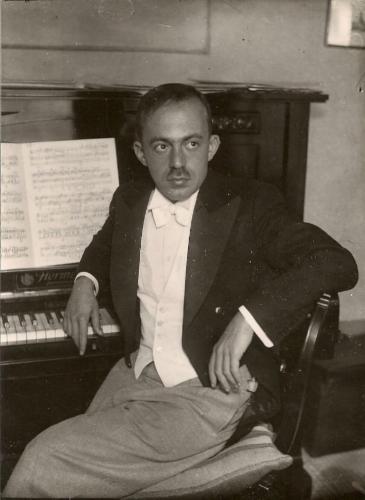Ritmische studies voor kamerorkest op. 58
By Géza Frid
Details
Allegro con brio
Allegretto
Tempo giusto
Andante moderato
Presto corrente
Deciso
Molto allegro
A version for 2 piano's (op. 58a) exists as well.
Commissioned by the Ministerie van O. K. en W
Deze zeven korte schetsen zijn, overeenkomstig de opdracht, bedoeld als oefeningen op ritmisch gebied voor nog niet geroutineerde leden van conservatoriumorkesten.
Ongewone maatindelingen (zoals 7/4 en 5/8), gelijktijdige combinaties van 3/4, 6/8 en 2/4 maat en syncopische en canonische verschuivingen wisselen elkaar af, zonder hiermee echter tot een te gecompliceerd geheel te leiden. - GEZA FRID
First performance
Jun 12, 1959 Kunstmaand Orkest o.l.v. Hans Lichtenstein


 Géza Frid Orchestral Music - Historical Recordings
Géza Frid Orchestral Music - Historical Recordings
